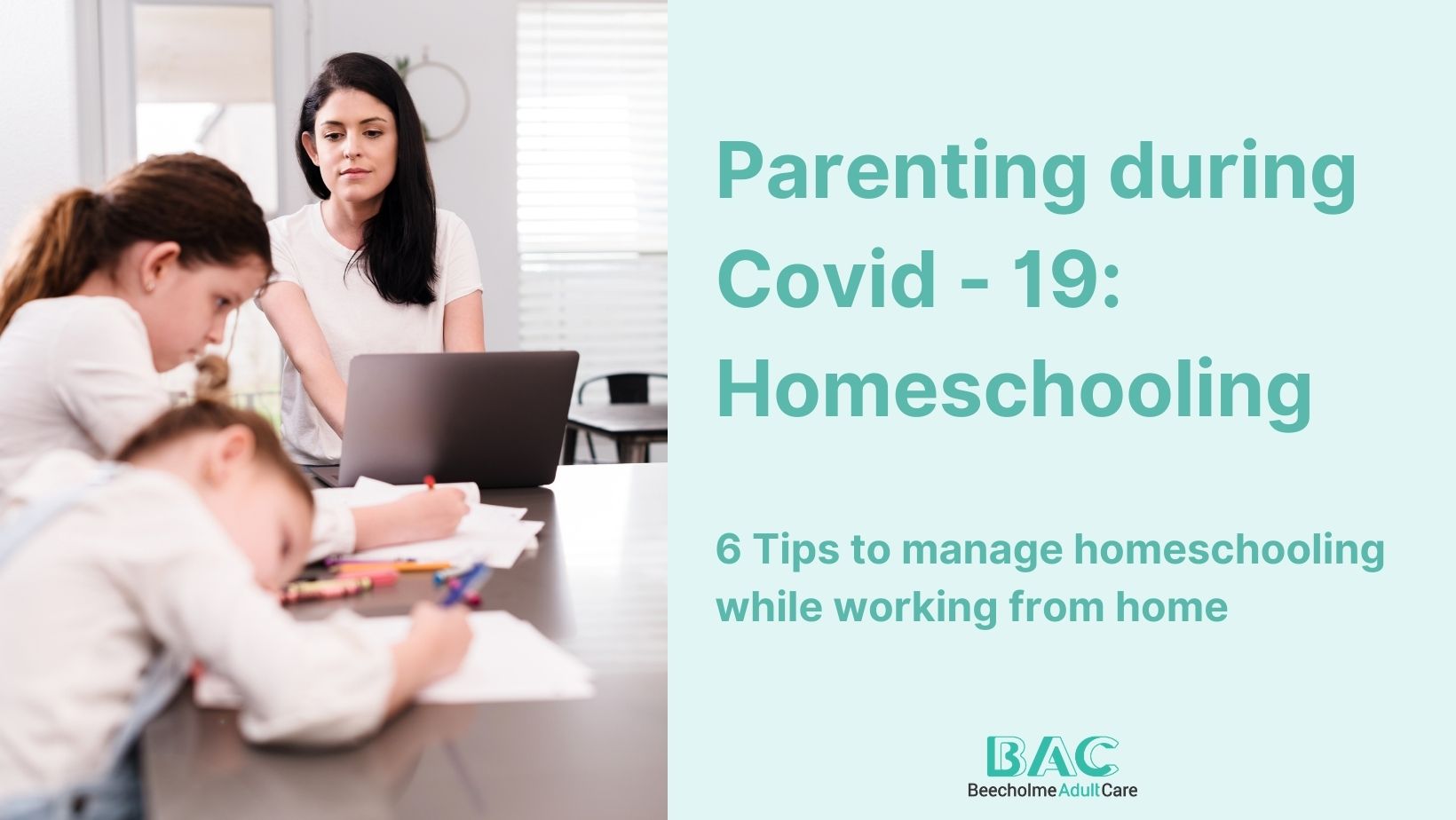Covid-19 has changed our homes and the way we work and live and homeschooling has suddenly become the new normal for many parents
As a parent at this time, it’s easy to feel that you have so many roles to fulfill that you can’t possibly perform any of them well. School has become a primary source of stress, anxiety, frustration, and deep guilt for many parents who feel they have not the right skills to teach their children. But it’s important to remind yourself that this is a unique situation, a global health emergency that none of us have had to face before.
By going easy on yourself and following a few simple homeschooling tips for maintaining a sense of balance, you can keep your stress levels in check and make each day a little easier for your family—and for yourself.
1. Create a designated learning space
Homeschooling is fun, exciting, and often messy. Living and learning under the same roof can quickly lead to disorganization and chaos. To avoid confusion (and preserve your mental health), keep your children’s study materials organized and designate a specific learning area. Consider posting a printed schedule at their studying place so they always know what tasks need to get done and what goals they’re working on that day or week.
2. Set a homeschooling daily routine
Make sure your child is dressed for the day and has eaten breakfast on time. This will not only instil in them a healthy daily timetable but also keep them prepared to adjust when they finally return to school. Identify set times during the day when children will work independently and other times when you will be around to supervise, guide and teach. And finally, ensure you set a clear playtime, lunchtime and ‘end of school’ time, when they can feel free to do their own thing.
3. Collaborate with other homeschoolers
Connect with other homeschoolers and parents in your area or online to collaborate and share resources. This will not only make the schooling process easier on you, but it will also enrich your child’s experience and expand their educational opportunities in and out of your home. Moreover it may help you feel less isolated as well.
4. Set goals—and celebrate their completion
Having something to look forward to can help kids stay motivated. Setting up small rewards, like watching an episode of a favorite TV show, can help them tackle that unpleasant school assignment. Get the whole family in on it. If you all set a few goals and plan breaks together, your kids will see that you’re a team.
5. Get creative with lessons
School lessons can sometimes be tedious, so it can be hard to hold children’s attention on a consistent basis. Make sure you let your child learn new things in a fun way by incorporating activities in their lessons. They can play table games that can enhance their arithmetic or language skills. You can also encourage them to try out arts and crafts to boost their imagination and creativity.
6. Give yourself a break or two
Remember, we are all going through a pandemic and not a productivity contest. It is important to be kind to yourself and not beat yourself up for not doing everything perfectly. If you do not feel like teaching on certain days or if the child does not seem to be in the mood for learning, do not take it to your heart.
Just remember: you’re not alone. Many parents are struggling to adjust and take on new responsibilities like teaching. For additional support during this time, consider to get in touch with a counsellor who can help you to find the right balance between parenting and homeschooling.
We also recommend you a list of external resources:
Practices, resources, and articles for individuals, parents, educators, and health care professionals facing COVID-19 – Greater Good
Advice for parents about talking about coronavirus with children – Unicef
A whole range of support for working parents – Working Families

